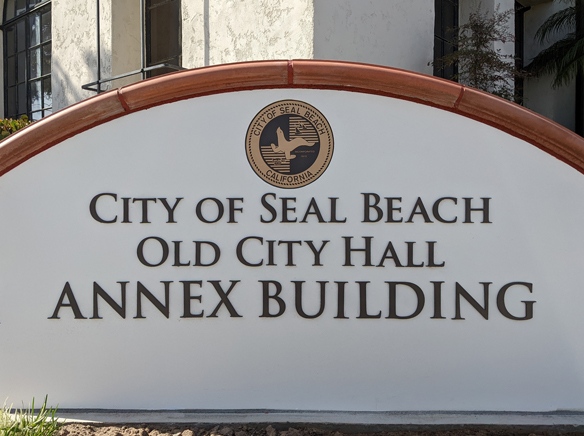This week, the City Council voted unanimously to suspend enforcement of the short term rental ban in response to two recent court rulings that said cities can’t ban vacation rentals.
It was the last item on the agenda of what turned out to be a roughly one-hour council meeting. No one mentioned the issue during the public comment portion of the council meeting.
This was not a public hearing, so the council did not take public comment.
The court cases in question were Kracke versus city of Santa Barbara and Keen versus City of Manhattan Beach. “While the details of the cases varied, the respective opinions of the appellate courts both held that the California Coastal Act overrides cities’ short-term rental bans, as such bans restrict coastal access and therefore any bans would require Coastal Commission approval,” wrote Community Development Director Alexa Smittle wrote in her staff report.
Seal Beach currently bans short term (vacation) rentals, except for 14 legal vacation rentals, according to Smittle’s report.
Smittle told the council that there were several issues to be considered, such as how the short-term rentals could operate and how city staff could enforce the city’s rules.
“We want to make sure that we’re doing that right in order to maintain the integrity of our neighborhoods,” Smittle said.
“And staff is asking for a little bit more time to research this and put together options for the council to consider,” Smittle said.
District One Councilman/Mayor Joe Kalmick said he hoped everyone understood the potential for the city, but also understood the city’s position. “Once again, these decisions are being taken out of our hands and anything that we do at this point is being mandated,” Kalmick said.
Kalmick asked if the only thing the city could do is require a business license and collect property tax.
Staff confirmed that he was correct.
Background
The state Supreme Court turned down Manhattan Beach’s request for a review of the Keen case in late July, according to Smittle.
“The appellate court decisions in both cases were published, and therefore are now case law,” Smittle wrote.
According to Smittle’s report, staff will have to present a Zone Text Amendment to the Planning Commission for their recommendation, then bring the amendment back to the council.
“In the interim, staff is recommending the City Council suspend enforcement of Municipal Code Section 11.4.05.135,” Smittle wrote, referring to the vacation rental ban.
“Financial impacts are unknown at this time,” Smittle wrote.
“Short term rental businesses are required to have a business license and remit transient occupancy taxes, which would increase City revenues,” Smittle wrote.
“Staff also anticipates an increase in calls for service to both the Police Department and Code Enforcement,” Smittle wrote.
The City Council approved the current vacation rental ban in November 2012.
During a September 2012 council meeting, several members of the public asked the council for a permanent ban on vacation rentals. At that time, an interim ordinance allowed vacation rentals provided they were approved by a conditional use permit.
For many years, the city of Avalon approved vacation rentals using conditional use permits. However, in 2020 Avalon began phasing out CUPs for short term rentals and replacing them with business licenses that would have to be renewed annually.












